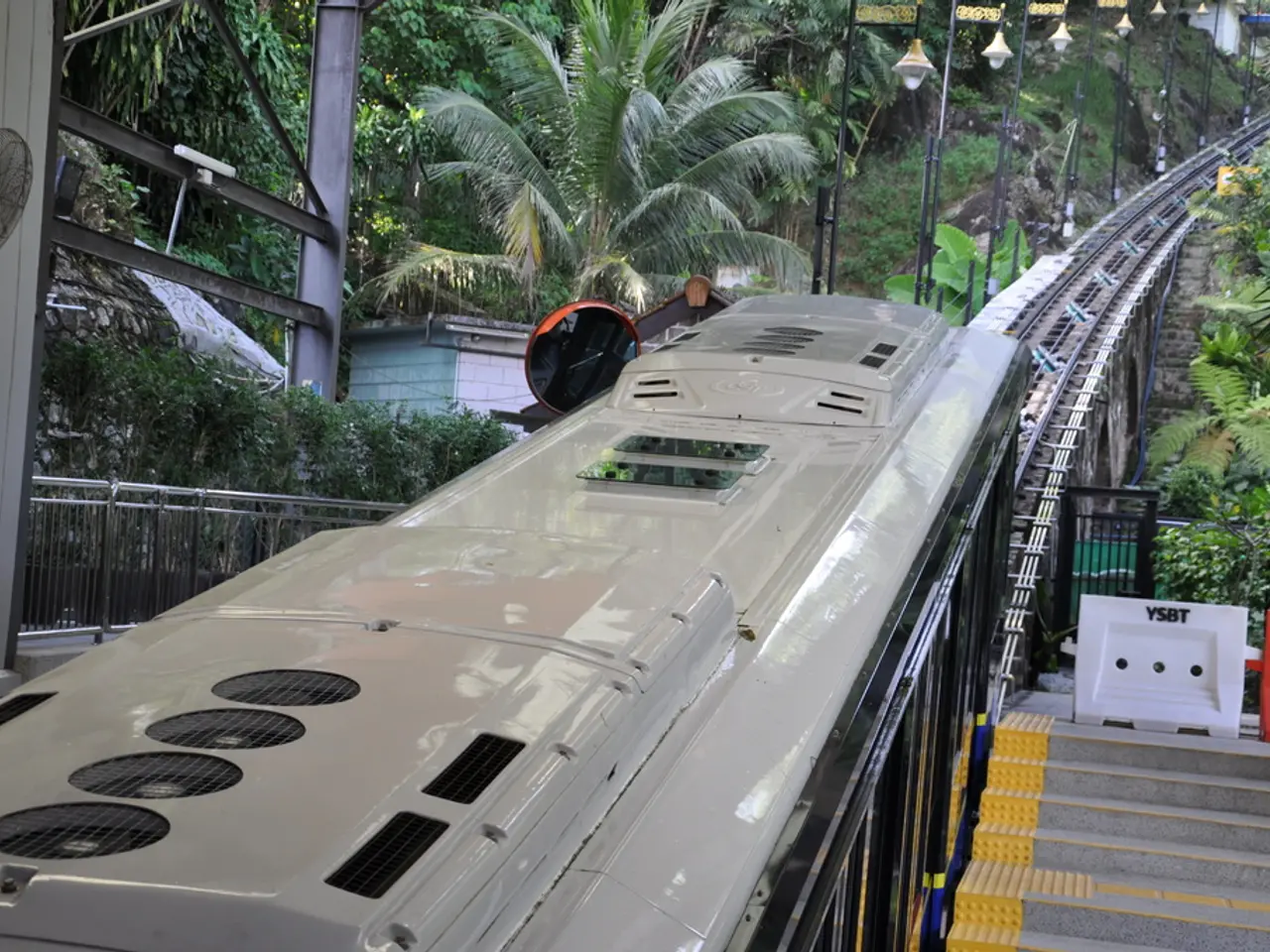South India's High-Speed Railway Project is in the development phase, overseen by Andhra Pradesh's Chief Minister, Naidu.
=======================================================================
India's first high-speed rail corridor, connecting Mumbai and Ahmedabad, is nearing completion, with infrastructure along the Gujarat section approaching its final stages. This ambitious project, planned to revolutionise transportation in the country, has also sparked debates and concerns regarding its social, environmental, and economic implications.
The stations along the Gujarat section are being built with modern facilities, incorporating regional design elements, and including environmentally conscious features. However, construction activities have raised concerns, with incidents such as a gantry collapse near Ahmedabad disrupting rail services for over 18 hours in March 2025, affecting more than 50 trains. A temporary structure collapse in Gujarat in November 2024 resulted in the death of three workers, underscoring the need for safety measures during construction.
Another concern is the potential impact on the environment. Construction near Vadodara has obstructed the Vishwamitri riverbed and floodplain, prompting local authorities to demand the removal of barriers before the monsoon season to prevent flooding.
Affordability is another key issue. With ticket prices likely to be affordable only to a small segment of the population, questions about the wider benefits of the bullet train project have been raised. Land acquisition for new corridors can lead to displacement and social tensions, adding to the project's complexities.
The bullet train project, if implemented, will connect not just Mumbai and Ahmedabad, but also four major South Indian cities: Hyderabad, Chennai, Amaravati, and Bengaluru. The National Rail Plan has identified several potential routes for a high-speed rail network in India, including Delhi to Varanasi, Delhi to Ahmedabad, Mumbai to Nagpur, Mumbai to Hyderabad, Chennai to Mysore, Delhi to Amritsar, and Varanasi to Howrah.
The announcement for the bullet train project was made during the India Food Manufacturing Summit 2025 in Visakhapatnam. Chief Minister N. Chandrababu Naidu stated that the project, once implemented, would carry significant economic and logistical value for the region, with more than five crore people living in the area, making it the biggest cluster and the biggest market in the world.
However, the project faces challenges such as limited accessibility, high costs, and environmental concerns. These issues highlight the complexities of balancing infrastructure development with social and environmental responsibility in India. The exact completion target date for the bullet train connection between Hyderabad, Chennai, Amaravati, and Bengaluru was announced on August 15, 2023, and the National High-Speed Rail Corporation Limited (NHSRCL) is responsible for conducting the investigation and overseeing the project. The survey for the proposed corridor is currently underway.
Read also:
- Peptide YY (PYY): Exploring its Role in Appetite Suppression, Intestinal Health, and Cognitive Links
- Toddler Health: Rotavirus Signs, Origins, and Potential Complications
- Digestive issues and heart discomfort: Root causes and associated health conditions
- House Infernos: Deadly Hazards Surpassing the Flames








